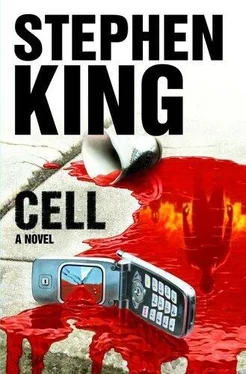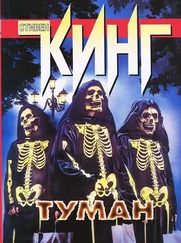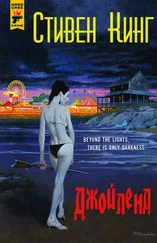"And you've installed software, right?"
"Sure, but—" Tom stopped, looking at Alice fixedly. She looked back. "Their brains'? You mean their brains'?"
"What do you think a brain is?" Jordan said. "A big old hard drive. Organic circuitry. No one knows how many bytes. Say giga to the power of a googolplex. An infinity of bytes." He put his hands to his ears, which were small and neatly made. "Right in between here."
"I don't believe it," Tom said, but he spoke in a small voice and there was a sick look on his face. Clay thought he did believe it. Thinking back to the madness that had convulsed Boston, Clay had to admit the idea was persuasive. It was also terrible: millions, perhaps even billions, of brains all wiped clean at the same time, the way you could wipe an old-fashioned computer disc with a powerful magnet.
He found himself remembering Pixie Dark, the friend of the girl with the peppermint-colored cell phone. Who are you? What's happening? Pixie Dark had cried. Who are you? Who am I? Then she had smacked herself repeatedly in the forehead with the heel of her hand and had gone running full tilt into a lamppost, not once but twice, smashing her expensive orthodontic work to jagged pieces.
Who are you? Who am I?
It hadn't been her cell phone. She had only been listening in and hadn't gotten a full dose.
Clay, who thought in images rather than words a good deal of the time, now got a vivid mental picture of a computer screen filling up with those words: WHO ARE YOU WHO AM I WHO ARE YOU WHO AM I WHO ARE YOU who AM I who ARE YOU WHO am I, and finally, at the bottom, as bleak and inarguable as Pixie Dark's fate:
SYSTEM FAILURE.
Pixie Dark as a partially wiped hard drive? It was horrible, but it felt like the stone truth.
"I majored in English, but as a young man I read a great deal of psychology," the Head told them. "I began with Freud, of course, everyone begins with Freud . . . then Jung . . . Adler . . . worked my way around the whole ballfield from there. Lurking behind all theories of how the mind works is a greater theory: Darwin's. In Freud's vocabulary, the idea of survival as the prime directive is expressed by the concept of the id. In Jung's, by the rather grander idea of blood consciousness. Neither man, I think, would argue with the idea that if all conscious thought, all memory, all ratiocinative ability, were to be stripped from a human mind in a moment, what would remain would be pure and terrible."
He paused, looking around for comment. None of them said anything. The Head nodded as if satisfied and resumed.
"Although neither the Freudians nor the Jungians come right out and say it, they strongly suggest that we may have a core, a single basic carrier wave, or—to use language with which Jordan is comfortable—a single line of written code which cannot be stripped."
"The PD," Jordan said. "The prime directive."
"Yes," the Head agreed. "At bottom, you see, we are not Homo sapiens at all. Our core is madness. The prime directive is murder. What Darwin was too polite to say, my friends, is that we came to rule the earth not because we were the smartest, or even the meanest, but because we have always been the craziest, most murderous motherfuckers in the jungle. And that is what the Pulse exposed five days ago."
17
" Irefuse to believe that we were lunatics and murderers before we were anything else," Tom said. "Christ, man, what about the Parthenon? What about Michelangelo's David? What about that plaque on the moon that says, 'We came in peace for all mankind'?"
"That plaque also has Richard Nixon's name on it," Ardai said drily. "A Quaker, but hardly a man of peace. Mr. McCourt—Tom—I have no interest in handing down an indictment of mankind. If I did, I'd point out that for every Michelangelo there's a Marquis de Sade, for every Gandhi an Eichmann, for every Martin Luther King an Osama bin Laden. Leave it at this: man has come to dominate the planet thanks to two essential traits. One is intelligence. The other has been the absolute willingness to kill anyone and anything that gets in his way."
He leaned forward, surveying them with his bright eyes.
"Mankind's intelligence finally trumped mankind's killer instinct, and reason came to rule over mankind's maddest impulses. That, too, was survival. I believe the final showdown between the two may have come in October of 1963, over a handful of missiles in Cuba, but that is a discussion for another day. The fact is, most of us had sublimated the worst in us until the Pulse came along and stripped away everything but that red core."
"Someone let the Tasmanian devil out of its cage," Alice murmured. "Who?"
"That need not concern us, either," the Head replied. "I suspect they had no idea of what they were doing . . . or how much they were doing. Based upon what must have been hurried experiments over a few years– perhaps even months—they may have thought they would unleash a destructive storm of terrorism. Instead they unleashed a tsunami of untold violence, and it's mutating. Horrible as the current days may now seem, we may later view them as a lull between one storm and the next. These days may also be our only chance to make a difference."
"What do you mean, mutating?" Clay asked.
But the Head didn't answer. Instead he turned to twelve-year-old Jordan. "If you please, young man."
"Yes. Well." Jordan paused to think. "Your conscious mind only uses a tiny percentage of your brain's capacity. You guys know that, right?"
"Yes," Tom said, a bit indulgently. "So I've read."
Jordan nodded. "Even when you add in all the autonomic functions they control, plus the subconscious stuff—dreams, blink-think, the sex drive, all that jazz—our brains are barely ticking over."
"Holmes, you astound me," Tom said.
"Don't be a wiseass, Tom!" Alice said, and Jordan gave her a decidedly starry-eyed smile.
"I'm not," Tom said. "The kid is good."
"Indeed he is," the Headmaster said drily. "Jordan may have occasional problems with the King's English, but he did not get his scholarship for excelling at tiddlywinks." He observed the boy's discomfort and gave Jordan's hair an affectionate scruff with his bony fingers. "Continue, please."
"Well. . ." Jordan struggled, Clay could see it, and then seemed to find his rhythm again. "If your brain really was a hard drive, the can would be almost empty." He saw only Alice understood this. "Put it this way: the info strip would say something like 2 percent in use, 98 percent
available. No one has any real idea what that ninety-eight percent is for, but there's plenty of potential there. Stroke victims, for instance . . . they sometimes access previously dormant areas of their brains in order to walk and talk again. It's like their brains wire around the blighted area. The lights go on in a similar area of the brain, but on the other side."
"You study this stuff?" Clay asked.
"It's a natural outgrowth of my interest in computers and cybernetics," Jordan said, shrugging. "Also, I read a lot of cyberpunk science fiction. William Gibson, Bruce Sterling, John Shirley—"
"Neal Stephenson?" Alice asked.
Jordan grinned radiantly. "Neal Stephenson's a god."
"Back on message," the Head chided . . . but gently.
Jordan shrugged. "If you wipe a computer hard drive, it can't regenerate spontaneously . . . except maybe in a Greg Bear novel." He grinned again, but this time it was quick and, Clay thought, rather nervous. Part of it was Alice, who clearly knocked the kid out. "People are different."
"But there's a huge leap between learning to walk again after a stroke and being able to power a bunch of boomboxes by telepathy," Tom said. "A quantum leap." He looked around self-consciously as the word telepathy came out of his mouth, as if expecting them to laugh. No one did.
Читать дальше








